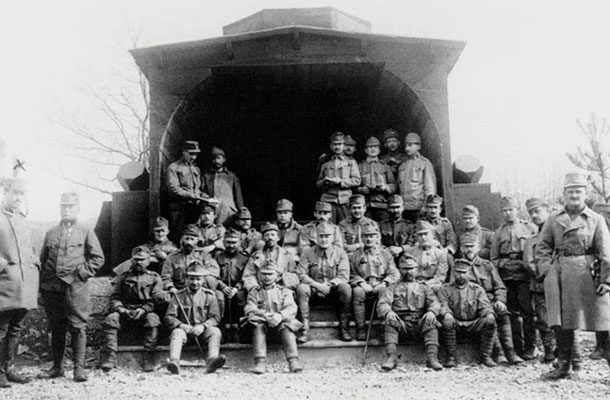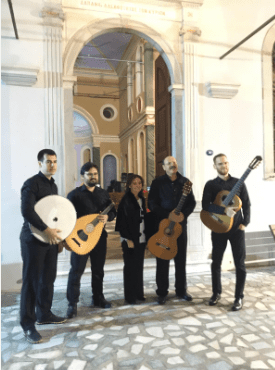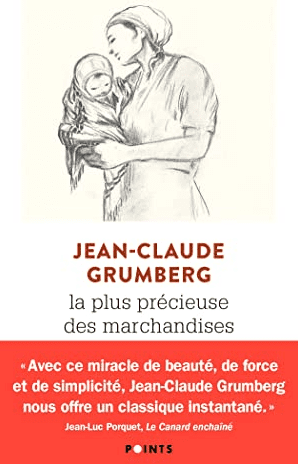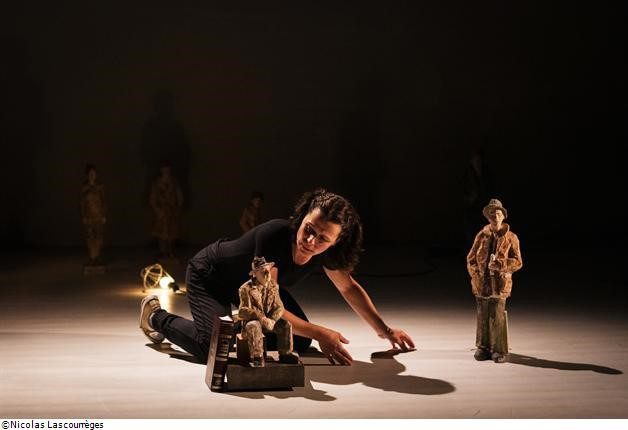Mini street spectacle Jewish Life in Ljubljana
We will start the core programon on 30 and 31 August, when we will stage a street performance, a mini spectacle Jewish Life in Ljubljana, on the street in front of our centre. I have prepared the script and the text together with the extremely prolific Slovenian writer and director Vink Moederndorfer and condensed it into 8 pictures. The play was directed by the Israeli director Yonatan Esterkin. The play was co-produced last year with the Yiddish Theatre of Tel Aviv and features three Israeli actors, four from Slovenia and five musicians. Before World War II, quite a few Jewish families lived in Ljubljana, although the community was relatively small and numbered less than 200 people. They had their own customs, their own habits. People of Jewish origin also lived in Križevniška Street. As in many streets of our city. They have lived here since ancient times. They lived peacefully. They were doctors, students, merchants, shoemakers, bankers, builders, lawyers, … They married among themselves, as well as outside their families and religion. They cultivated their own customs. Sometimes more openly, sometimes more covertly, depending on the time, politics and social mood. After the occupation of Yugoslavia in 1941, the situation worsened even for the Jews on Slovenian soil. Otherwise, less than a thousand believers professed the Jewish faith on the territory of the pre-war Drava Banovina, most of them in Prekmurje. Jews were most persecuted by the German occupier in their occupied territory in Styria and Gorenje, while the Italian and Hungarian occupiers took a more lenient stance, especially towards Jews who had already lived in the occupied area before the Second World War. When the Italians occupied Ljubljana, many young Jews worked with the Liberation Front. More than many Slovenians, Jewish families were aware of the danger of fascism and Nazism. Very soon, however, bans for Jewish residents appeared in Ljubljana as well. The Pollak, Ebenspanger, Bolaffio, Silberstein, Steinberg, Baumgarten, Moskovič, Kapper, Lorant, Goldstein, Oblat,… In the street play-performance Jewish life in Ljubljana, for which the script and text were prepared by Robert Waltl and Vinko Möderndorfer, actors from the Mini Theater Ljubljana (Tadej Pišek, Timotej Novaković, Barbara Vidovič and Nika Korenjak) and the Yiddishpiel Theater from Tel Aviv ( Nathan Hecht, Omer Rozenblum and Hanna Hill), who, under the direction of the well-known Israeli director Yonatan Estrkin, presented to the Slovenian audience in eight pictures a fragment of pre-war Jewish life in Ljubljana with Jewish customs and celebrations, as well as the occupation and the Holocaust period in Ljubljana, when the native Jews were first joined by thousands of refugees, first from Germany, Austria, the Czech Republic, Poland, and after 1941, mainly by hundreds of Croatian Jews who were persecuted by the NDH and who found a temporary safe haven in Ljubljana. Through the pictures, the performance then led us through the persecution of Ljubljana’s Jews and deportations to extermination camps, to their participation in the Liberation Front and partisan units. Everything was connected by Jewish music, which was performed live by the musicians of the Kletzmer Trio. The play is performed in Slovenian, Hebrew and Yiddish.









